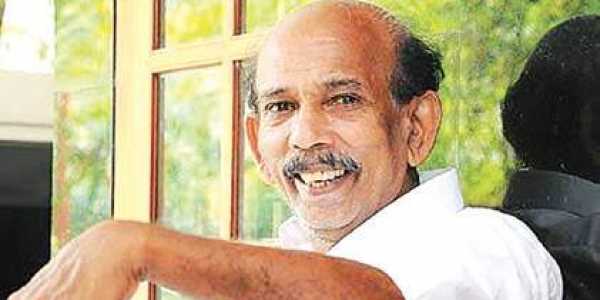xxxxxxxxx
Monthly Archives: July 2019
J&K: Slain rifleman Aurangzeb’s brothers join Army
JAMMU & KASHMIR :
Aurangzeb was abducted from Pulwama by terrorists and later his bullet-ridden body was recovered on June 14 last year.

Aurangzeb’s brothers Mohammad Tariq and Mohammad Shabbir join the Indian Army. (Photo: India Today)
Nearly a year after Rifleman Aurangzeb was abducted and killed by terrorists in Kashmir, his two brothers – Mohammad Tariq and Mohammad Shabbir, have joined the Infantry Battalion of Territorial army.
Aurangzeb was abducted from Pulwama by terrorists and later his bullet-ridden body was recovered on June 14 last year. The deceased Army man was proceeding towards his home for the festival of Eid when he was abducted in broad daylight from a vehicle. After his abduction, the Jammu and Kashmir police had launched a massive manhunt.
His father Mohammad Hanief said, “My two sons have joined TA Battalion. When Aurangzeb was killed, I told Raksha Mantri and top officers of the Indian Army that I will dedicate all my six sons to the forces.” He said, “My two sons will avenge the death of my son.”
Aurangzeb’s mother Raaj Begum said, “Yes, we fear something untoward may happen, but our sons wanted to join the Indian Army.”
Mohammad Tariq said, “After our training, we will fight against terrorism and will take revenge for our martyred brother Aurengzeb. Today we feel proud of joining the Indian army and are proud of our country.”
Aurangzeb’s father was a former sepoy of the Jammu and Kashmir Light Infantry. He joined the BJP before Lok Sabha polls but says his decision to send all his sons to the Indian Army is not based on his political inclination.
His eldest son Mohammed Qasim has already completed 12 years service and is back to serving in the Kashmir Valley.
source: http://www.indiatoday.in / India Today / Home> News> India / by Kamaljit Kaur Sandhu, New Delhi / July 22nd, 2019
Football for women’s empowerment: how Tanaz Mohammed is changing the game for hundreds of young girls
Mumbai, MAHARASHTRA :
As coach educator, Mumbai-based Tanaz Mohammed is helping hundreds of young girls stay empowered through football.
Perceived as weak and not made for ‘rough sports,’ girls and women are often frowned upon for wanting to get on the playing field. As a child, Tanaz Mohammed’s love for football and wanting to take up the game was met with hesitation. Today, the 26-year-old from Mumbai, is helping other young girls embrace football on the road to empowerment.
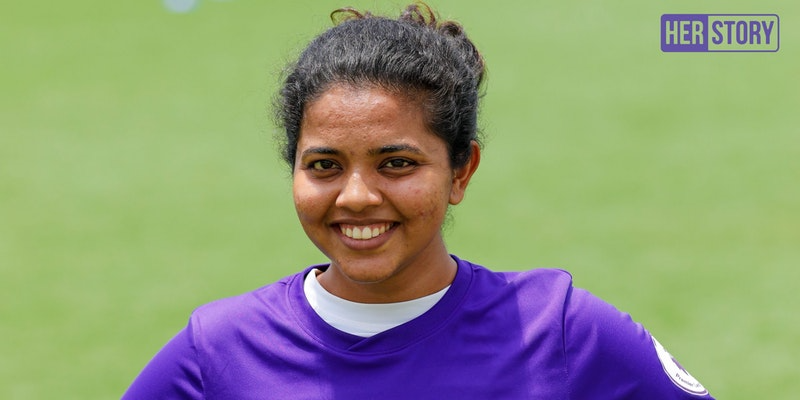
Tanaz, who has been pursuing football for the past three years, serves as the Grassroots Development Officer for the Mumbai City Football Club, and is a level one Coach Educator atPremier Skills, an initiative by British Council that encourages community coaching across the globe. She is also a Development Coach for Reliance Young Champs.
Along with football, Tanaz is also a national-level hockey player.
The game changer
Through Premier Skills, Tanaz has coached hundreds of girls and helped their families understand why football is not just meant for boys. Her biggest project so far has been a 10-day coaching camp in Madanpura, Mumbai, a largely Muslim-dominated community, where girls didn’t have much exposure to sports.
Recalling the experience, Tanaz says,
“In Madanpura, boys’ football is given more importance, and the girls aren’t really out in big numbers. But when I went there, the parents realised that their girls would be safe, training with a female coach, and over 400 girls showed up. By the end of the camp, I was coaching the women who accompanied them as well!”
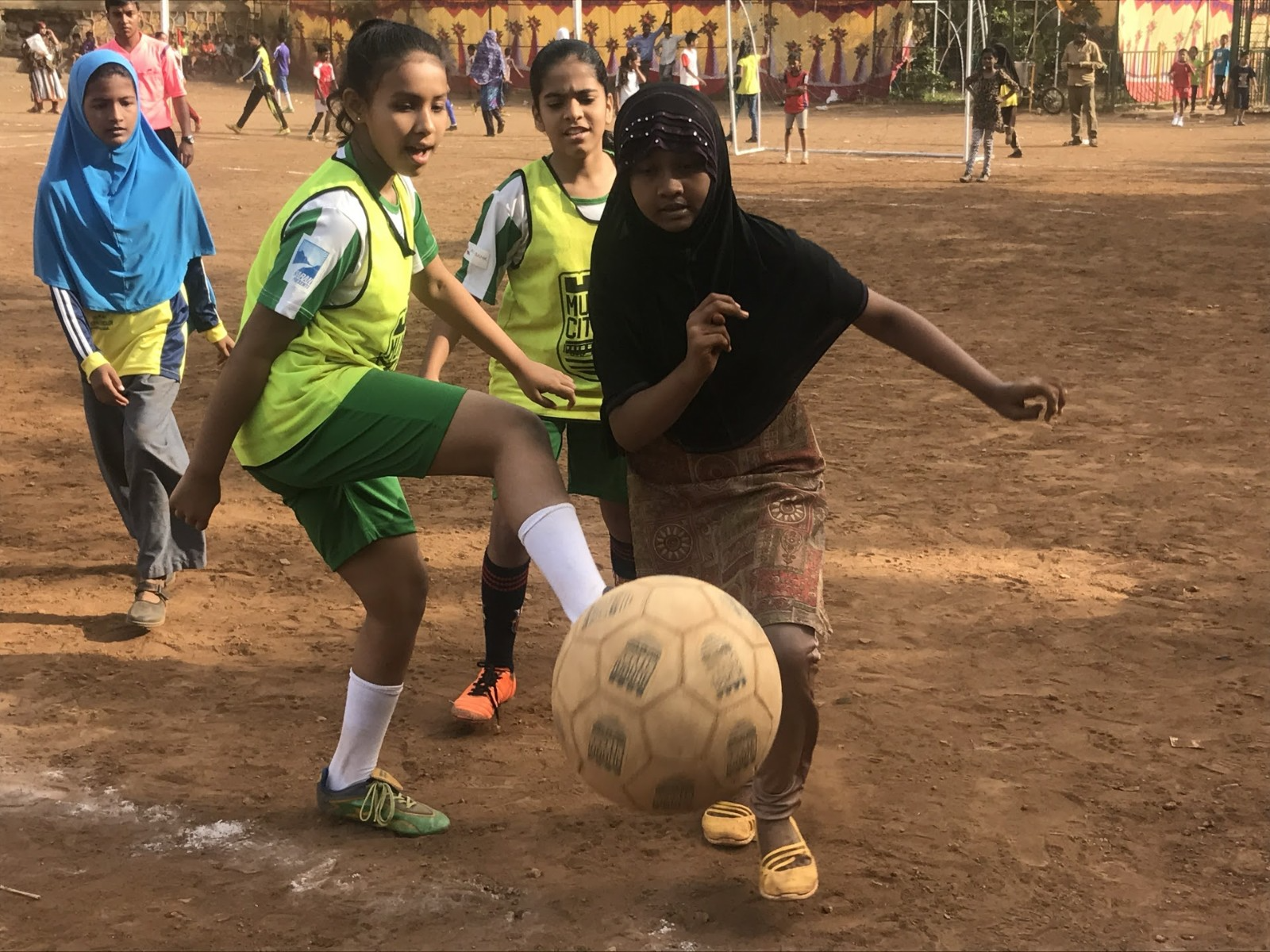
Even though the coaching camp lasted for just 10 days, the girls were determined to keep playing the sport, and formed their own football teams at school. Tanaz says that they have been consistently competing in local tournaments. Also, the girls have overcome their initial barriers about clothing, and continue playing with their hijabs and salwars.
Recounting an eye-opening memory from the coaching camp, Tanaz says,
“To begin with, it was only the mothers who accompanied their daughters to the coaching grounds. But on the last day, the father of one of the girls was there. Both the parents told me that they never knew that female football coaches existed, and because of the coaching camp, their daughter has been able to play the sport.”
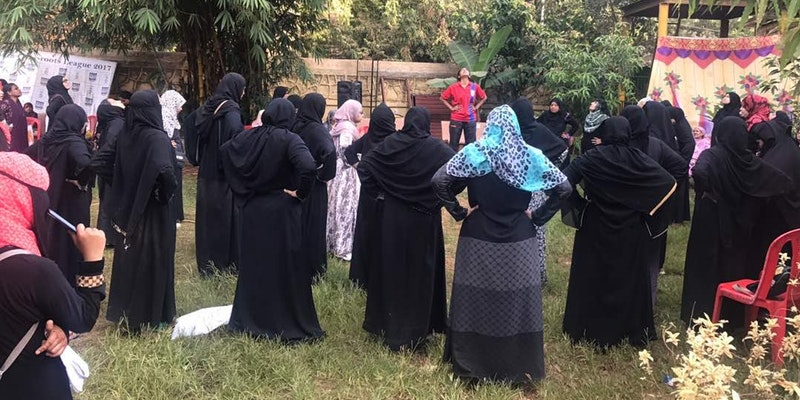
Getting the ball rolling
Ever since she was a little girl, Tanaz has made her love for sports loud and clear. Although she is a professional footballer today, she first pursued hockey through the girls’ team at school, and quickly made her way to the national level.
However, after she graduated from college with a degree in Sports Management Studies, she was offered an internship at Mumbai City Football Club, through which her interest in football began flourishing. She then took up a basic course in football, and enrolled with Premier Skills to become a qualified coach educator.
“There was some initial hesitation from my parents, but they have been my biggest support system. There are a few people who have passed unpleasant comments, but I chose to ignore them,” says Tanaz.
In 2018, Tanaz was the manager of the Mumbai District Football Team that won the State Level Sub-Junior Girls Football Championship held in Jalgaon. She has also been a hockey team coach to the girls’ team at MMK College Mumbai, who won the Mumbai University Inter-Collegiate Hockey Tournament in 2017.
Tanaz says that three girls from the Sub Junior Football Team went on to play for the Under 15 Indian Team. When it comes to hockey, eight of the players represented Mumbai University in the All India Inter-University Tournament. They also represented Mumbai in the Junior and Senior National tournaments.
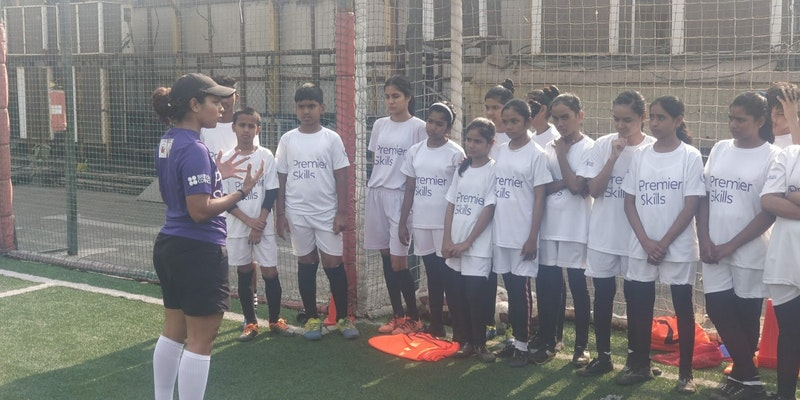
All in the game
Now as a coach educator, Tanaz’s mission is to create a lasting impact on girls and society across the country. She says she wants to present young girls everywhere with opportunities that can help expand their horizons and stay empowered.
“I plan to extend my reach across India and help girls realise that there are plenty of sporting opportunities out there that they just need to grab. It is a slow process, but I will continue doing my work,” Tanaz says.
On the support girls and women need from the government and sports associations, Tanaz says that there need to be more grassroots activities, coaching camps, and leagues that can help girls get on the field from a young age.
To all the young girls aspiring to pursue a career in sports, Tanaz says: “Believe the voice in your head telling you to just do it, even if everyone else discourages you. Focus on your own journey, and don’t compare your progress to someone else’s. Get rid of the barriers you make for yourself, and tell yourself you can do whatever you set your mind to.”
(Edited by Rekha Balakrishnan)
source: http://www.yourstory.com / Your Story / Home> Her Story> Women’s Empowerment / by Sasha R / edited by Rekha Balakrishnan / July 03rd, 2019
Yunus Dehlvi was the Mirza Ghalib and Mauana Azad of Urdu magazines!
NEW DELHI :
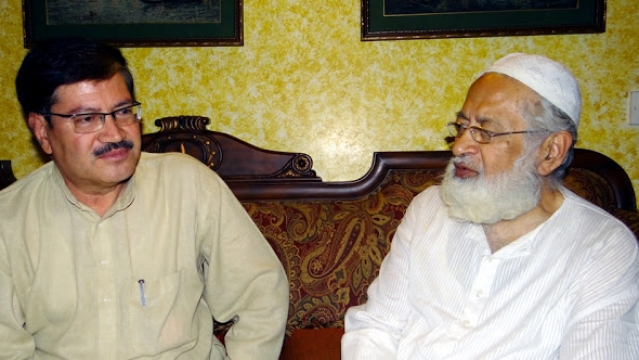
Yunus Dehlvi ran the world’s biggest chain of the Urdu magazines from 1943 till 1994 after the family fragmented and the historic era of these publications ended
We have all grown through the fragrant flairs of our childhood, one of them being our childhood mother-tongue historic magazines like, “Thakurmar Jhuli” (Bengali), “Khilauna” (Urdu), “Hans” (Marathi), “Parag” (Hindi), “Chitralekha” (Gujarati), “Chandamama” (Telugu), etc.
So have I grown reading the world famed Urdu chain of magazines including, “Khilauna”, “Shama”, Bano”, “Shama”, “Mujrim”. The doyen of these magazines, Yunus Dehlvi, father of eminent author, Sadia Dehlvi, is no more. He was the Ghalib of publications and Azad of the content.
Dehlvi’s efforts need to be hailed and made known to the world through the most widely circulated edition of yours as a true homage to a warrior for his mother-tongue. Started by his father, Haji Yusuf Dehlvi, Yunus ran the world’s biggest chain of these Urdu magazines from 1943 till 1994 after the family fragmented and the historic era of these publications got sacrificed at the altar of children and grandchildren’s egos.
I “drank” my Urdu and learnt the language not from any madrasa, school or college but from these publications only — my treasure trove!
Having known the “Shama”, “Sushma”, “Khilauna”, “Bano”, “Shabistan”, “Mujrim”, and “Doshi” publisher and the owner of once the biggest chain of Urdu magazine anywhere in the world, Yunus Dehlvi since childhood, it is the saddest blow for me that the third surviving brother after Idrees Dehlvi and Ilyas Dehlvi is no more. It is a huge loss of Urdu and the connoisseurs of the above-mentioned magazines mentioned above.
On February 7, 2019, he breathed his last in the lap of his daughter Sadia Dehlvi and grandson, Ali Dehlivi, besides almost a hundred other relatives around him. He was buried at the Qaum Punjabian cemetery at Sheedipura, Karol Bagh, Delhi, in the presence of hundreds of his lovers with eyes welled in tears. He was 89 and about two years ago, he suffered from stroke.
Dehlvi was member, Governing Council of the Audit Bureau of Circulations Ltd (ABC), besides being the President (1969-70) of Indian and Eastern Newspaper Society (IENS).
A winner of umpteen Urdu awards round the globe, he had it, including Urdu Delhi Award, Edinburgh Urdu Circle, the John Gilchrist gold medal, Sahir Award besides a list of inexhaustible felicitations.
Magazines like “Shama” and “Khilauna” used not only to sell like hot cakes but these were also sold in “black”, the moment these were sent to the vendors. Another reason for the popularity of “Shama” was its “Muamma” (literary puzzle) where words had to be filled from Urdu novels and lakhs of rupees were at stake.
I remember the times when the issue of “Shama” Urdu monthly, the most sought after, had its circulation into lakhs, in fact more than a newspaper, like, “The Times of India” or the weekly, like, “The Illustrated Weekly”, as told to me by Yunus, when I had interviewed him some two years ago just before he was struck by a stroke.
In fact, special flights were booked for transporting “Shama” and “Khilauna” to London, Karachi and New York and the three brothers — Yunus, Ilyas and Idrees — used to accompany. The duty of Yunus was on the Air India or PIA Karachi sector.
Top film actors like Dileep Kumar, Ashok Kumar, Raj Kapoor, Asha Parekh, Nutan, Nargis, Raj Kumar, Sanjeev Kumar, Mohammed Rafi, Malika Pukhraj and many more used to frequent Yunus’ mansion at Sardar Patel Marg, now bought by politician, Mayawati.
Started by his father, Haji Yusuf Dehlvi, Yunus ran the world’s biggest chain of these Urdu magazines from 1943 till 1994 after the family fragmented and the historic era of these publications got sacrificed at the altar of children and grandchildren’s egos.
To be frank, I have learnt my Urdu from the magazines mentioned above and especially, “Khilauna”. Several old fans of “Khilauna”, today in their middle or old age, rummage “raddi” (scrap) shops or old bookshops from Karachi to Delhi and Lahore to Mumbai in search of it but in vain. Even in the libraries, these are not available. Fortunately, I have some 100 copies of the magazine from 1946 till 1987.
Several old fans of “Khilauna”, today in their middle or old age, rummage “raddi” (scrap) shops or old bookshops from Karachi to Delhi and Lahore to Mumbai in search of it.
Syed Faisal Ali, the editor of the Urdu daily “Sach ki Awaz” manages from his resources to get the old issues of “Khilauna” and reads these to relieve stress, “You escape back into your childhood, when you didn’t have a care in the world.” What was once a household name in the comity of children’s Urdu monthlies has become a collector’s item post its shut down.
“The craze for ‘Khilauna’ is keener among the older bunch,” Prof Akhtarul Wasey said, adding smugly that the old magazines always sold ‘at a premium’. However, these are just extinct now.
“Khilauna”, a collection of Urdu culture and heritage, had carved its niche through stories, poems, cartoons, comic strips like — “Nanhi Munni Kahaniyan” (a column for young writers), “Hamara Akhbar” (newspaper clippings), “Suraj Ka Bahadur Beta Shamsi” (serial pictorial story), “Muskurahatein” (jokes), “Hamarey Naam” (letters from readers), “Batao To Bhala” (Readers’ Questions and Answers), and much more.
Renowned Urdu poets and writers of the time — like Khwaja Ahmed Abbas, Hafeez Jalandhari, Hasrat Jaipuri, Qateel Shifai, Ismat Chughtai, Salam Machhli Shehri, Razia Sajjad Zaheer, Krishan Chander, Raja Mehdi Ali Khan, Balwant Singh, Kanhaiya Lal Kapoor, Ram Pal, Sahir Ludhianavi, Ram Lal, Siraj Anwar, Basheshar Pradeep, Shafiuddin Naiyar, Kaif Ahmed Siddiqui, Dr Kewal Dhir, KP Saxena, Azhar Afsar, Prakash Pandit, Aadil Rasheed, MM Rajinder, Jilani Bano, Naresh Kumar Shad, Abrar Mohsin, Masooda Hayat, Ishrat Rehmani, Abrar Mohsin, Khaliq Anjum Ashrafi — besides many others used to be household names from 1940 to 1990s.
The “Shama” and its sister publications will never be forgotten as the connoisseurs of best Urdu literature won’t forget Yunus Dehlvi.
source: http://www.nationalheraldindia.com / National Herald / Home> Cafe> Counter View / February 11th, 2019
Indian-Origin Man Conferred With ‘Star of Jerusalem’ Award
Jerusalem, PALESTINE :
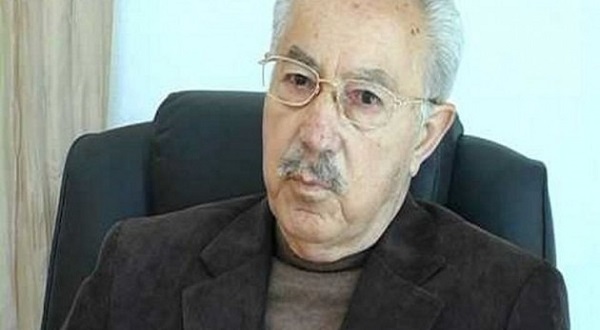
Jerusalem (PTI) :
Palestinian President Mahmoud Abbas has conferred Indian-origin Sheikh Mohammad Munir Ansari with the Star of Jerusalem medal – one of the highest honours given to foreign nationals by the Palestinian Authority – for strengthening Indo-Palestine ties. At an event organised to honour 91-year-old Ansari Thursday evening, Abbas thanked him for serving Palestine and Jerusalem with distinction. Ansari, 91, is the Director of Indian Hospice, a unique and historic monument in the heart of Jerusalem, which has become a symbol of India’s heritage and presence in the third holiest city for Muslims going back to over 800 years.
Abbas said the Ansari family’s presence in the old city of Jerusalem reflects the strong traditional ties between Indian and Palestinian people. He called upon for strengthening people-to-people contact between the two sides.
Abbas plans to send Palestinian Prime Minister Mohammad Shtayyeh to India soon to boost tourist inflows from there which can contribute to strong bonding between the two people.
A representative of India, Sunil Kumar, who was present at the event, also appreciated the role played by the Ansari family in strengthening Indo-Palestine ties.
The Indian hospice has been under the direct supervision of a representative from India since 1924. Ansari’s father, Sheikh Nazir Hassan Ansari, was appointed the first Sheikh of the Hospice from whom the mantle passed on to the incumbent who was born in Jerusalem in 1928 and has spent his whole life here.
In 2011, India honoured Ansari with the Pravasi Divas Samman, the highest honour conferred on overseas Indians.
The history of the hospice goes back to about 12th century, when famous Sufi saint from Punjab Baba Fariduddin Ganj-i-Shakar (or Baba Farid, as he is better known) visited Jerusalem on pilgrimage and prayed in seclusion for 40 days at the site.
It later became a pilgrimage site for Indian pilgrims visiting Jerusalem and was dedicated as a charitable Waqf property in trust for a pious purpose.
The place where Baba Farid is said to have prayed has become a major attraction for Indian tourists visiting Jerusalem.
Almost every prominent Indian leader who has visited the region has paid a visit to the site and the hospice continues to host Indians visiting the Holy Land. The hospice also received a grant from the Ministry of External Affairs for its renovation.
source: http://www.caravandaily.com / Caravan / Home> Indian Muslims / by June 15th, 2019
Muslim Girl Tops Delhi Govt. Schools in CBSE Class XII Exam Through Urdu Medium
NEW DELHI :
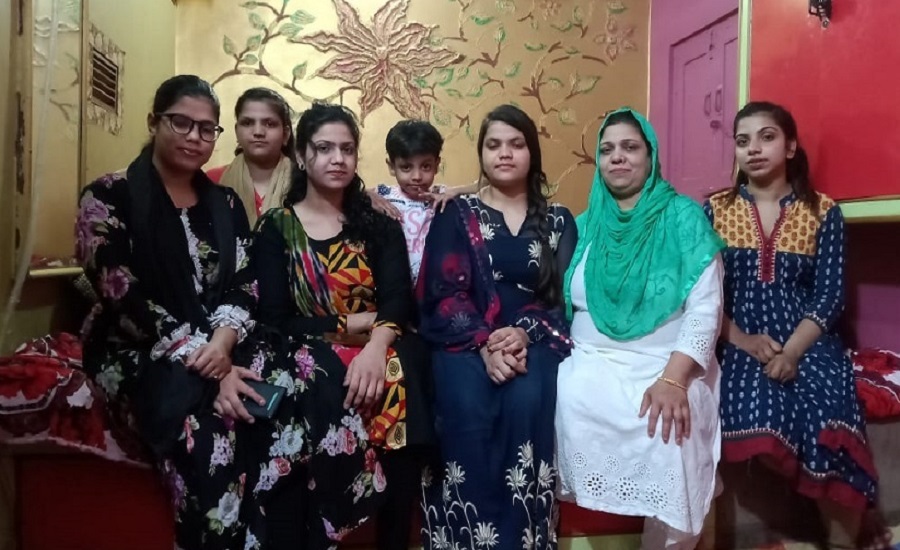
New Delhi :
Despite many detractors, Sana Niyaz, a student of an Urdu medium girls government school near Jama Masjid, is the top scorer among all Delhi government school students in the CBSE Class XII examinations, results for which were declared on Thursday.
A student of Sarvodaya Kanya Vidyalaya No. 2, Jama Masjid in Old Delhi, Sana scored 97.6 per cent marks in the Board examination and she is the fourth of her sisters to complete education from the same school.
Two years ago, Sana’s elder sister, Umra, had topped the school in her class XII CBSE examinations. Her youngest and fifth sister is also studying in class IX in the same school.
The 17-year-old Sana is the daughter of a Cook at Matia Mahal’s famed Al Jawahar restaurant. Her father and mother, a housewife, both stopped studying after class VIII. And these four sisters are the first ones in the family to have completed Class XII.
Sana’s family live in bylanes of Matia Mahal, Jama Masjid where no girl has gone to college and hardly there are some who are even allowed to go to school.
Hailing from an average family how did Sana managed to score high in her studies. She also had topped the exam by scoring 89% in Xth Class.
Sana says she never took tuition classes and relied upon her sisters for any guidance. She also credits her school teachers for her success who, she says, were always ready to help her.
Being a student of Urdu medium she must have faced other problems like non-availability of the subject books in Urdu. Sana says, “I studied in Urdu medium, but there was no Urdu edition of the second sociology book required in our syllabus. I looked for study material online, as well as the English and Hindi texts,” she said. She scored 98 per cent in sociology.
The main push behind her success is pursuing studies has always been her mother, Asma Parveen.
“Our father was initially not in favour of us even studying till class XII. But it is our mother who insisted we study and continued to push for us to go to college,” said Sana’s sislter Ilma, who is doing a vocational course in fashion designing after graduating from Zakir Husain College.
Sana Niyaz wants to pursue B.A. Program from St. Stephen’s College and along with that I also want to prepare for civil services as I aspire to become an IAS officer.
Why she wants to opt B.A. Programme and not any Honour degree in any particular subject, Sana says “Even though history is my favourite subject, I don’t want to do an honours degree because I want a mix of subjects. I also want to prepare for the civil services exams.”
Delhi government schools this year achieved their best-ever performance in class XII examination, with a pass percentage of 94.29 per cent.
source: http://www.caravandaily.com / Caravan / Home> Editor’s Pick / May 04th, 2019
Art from the land of uncertainty
JAMMU & KASHMIR :
Five students, who won the TATA Trusts Students’ Biennale National award, now serve a month-long residency in the city and showcase a Kashmir that is so different from the stereotype.
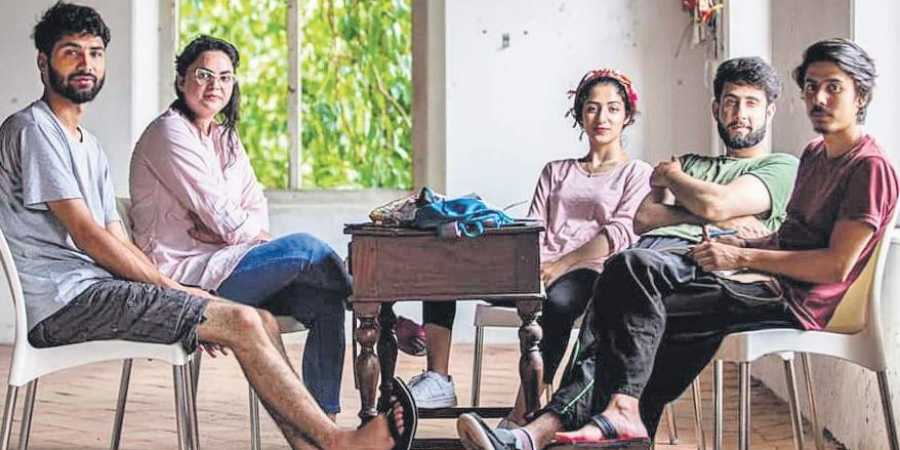
Kochi :
What is home? For many of us, it is solid and concrete, but to belong to a place of unrelenting turmoil is to hold the idea only in memory. The struggle is to capture an image that is in constant flux. For the students of the Institute of Music and Fine Art, University of Kashmir, who were granted the TATA Trusts Students’ Biennale National award at the closing ceremony of the Kochi-Muziris Biennale, art is rooted in conflict and trauma they have witnessed all their life.
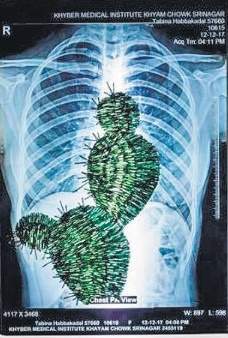
Students Biennale 2018
Kochi Biennale Foundation
Anis Rasheed, Arona Riyaz, Muzamil Ahmad, Numair Qadri and Tabeena Nissar Wani are the first batch of 11 recipients of the award who are in Kochi for a month-long residency programme at Pepper House.
Taking off from his video installation for the Students Biennale, Anis is exploring the polar opposite perceptions of his homeland. Kashmir, as the site of breathtaking beauty, is undercut by the news of regular ferment.
The work is called Jannat-e-Benazeer (unparalleled paradise). The audience upon seeing the setting of a movie theatre (absent in Kashmir) struggles to reconcile the heaven of popular imagination with the starkly different ground reality.
Muzamil, whose work was also exhibited at the Students Biennale communicated the idea of a vanishing house by showing ashes from his ancestral home which was burned down in 1990. For the residency, he is authoring a narrative of loss by depicting 200 graves, in memory of the people who were killed during the insurgency.
Numair’s has used familiar objects like pellets, stones and bricks, which have been turned into tokens of violence and killed thousands of young Kashmiris. Their unidentified graves populate the state even as families try to find closure. The idea of building numerous nameless graves will accompany Muzamil’s art in forging a fierce metaphor.
Tabeena, who had used X-rays of her own body to embroider disquieting patterns considered the practice as a temporary refuge from chaos and confusion. She will now detail recollection as an intensely private experience by exhibiting motion-blurred pictures of people declared missing. The distortion will act as a trope for hazy memory as well as an indicator of falsification of news that is propagated to the rest of the country.
Arona draws a parallel between a deeply personal struggle to the collective travails of her people. Having been in a coma for over two months following an accident, Arona is seeking to reinvestigate self-healing in correlation with the political scenario of her state.
source: http://www.newindianexpress.com / The New Indian Express / Home> Cities> Kochi / by Swetha Kadiyala / Express News Service / July 17th, 2019
Dubai-based businessman PA Rahman dies
KERALA / U.A.E :
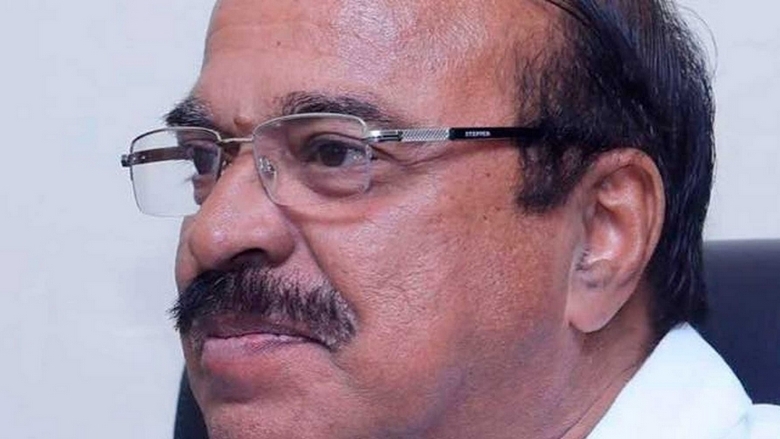
Rahman had been ill for nearly a year and he had flown to India for treatment.
Dubai-based businessman PA Rahman, chairman of Parco Group, died in his hometown in the south Indian state of Kerala on Sunday night. He was 72.
OK Ibrahim, KMCC senior vice-president, told Khaleej Times that Rahman had been ill for nearly a year and he had flown to India for further treatment.
“Relatives and friends who are close to Rahman travelled to India two weeks ago to pay their last respects, as his health continued to deteriorate,” Ibrahim said.
Rahman founded Mina Jebel Ali Canteen and Catering Services, the flagship firm of the Parco group of companies.
Over the last 39 years, he, along with his brothers, built diverse business units with interests in hospitality, retail, manufacturing, real estate, contracting, jewellery, healthcare, restaurants and education, among others.
“These companies are all supported by a large team of dedicated professionals who develop and manage the activities of the group,” said Ibrahim.
He was a successful entrepreneur but, on top of his achievements, people knew him as a community leader who was always willing to help those in need. He did a lot of social work and opened education centres.
He had served as a member of the state council of the Muslim League and a director of the Dubai Middle East Chandrika. He also founded NAM College, Kallikandy, a general degree college located in Kallikkandy, Kannur district, Kerala.
dhanusha@khaleejtime.com
source: http://www.khaleejtimes.com / Khaleej Times / Home> Nation> Dubai / by Staff Reporter, Dubai / July 10th, 2019
75 years of free healing
BIHAR / Kolkata, WEST BENGAL :
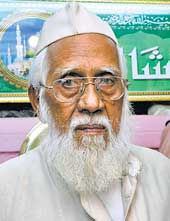
Who is he? Hakim Syed Mohammad Sharfuddin Quadri
Claim to fame: Recipient of the Padma Bhushan award this year, he is an illustrious Unani practitioner, 105 years old. Quadri has been treating patients for the past 75 years at his dispensary at Haji Mohsin Square, near Wellington, free of cost.
Fighting fit: Hakimji begins his day with namaaz at the break of dawn followed by his visit to Swadeshi Dawakhana — his dispensary, where he attends patients all day. About 100 patients visit daily.
The centurion is amazing in his physical fitness and sharpness of mind and is a specialist in treating infertility. After a day’s hard work, which ends around midnight, he goes for a walk — to keep his gout from acting up.
Starting point: Born in a family of hakims in Bihar, it was natural for him to choose this profession. Quadri completed a course on Unani from Shafakhana Darsgah Tibbia (Gaya) in 1930. He participated in the freedom movement. He started to practise in Calcutta after his family shifted here.
Other activities: He began an informal school for children and triggered an adult literacy campaign in his locality. He had also published a magazine called Hikmate Bangala in the late Fifties. He works for citizen’s rights and is a founder member of the Unani Medical College and Hospital, Calcutta.
Low profile: He has had a lot of visitors since becoming the only person from the city to be awarded the Padma Bhushan this year. But he keeps reminding them that he is a mere “hakim”.
source: http://www.telegraphindia.com / The Telegraph, online edition / Home> West Bengal / by Shabina Akhtar / June 17th, 2007
My children have never shown interest in acting: Kerala actor Mamukkoya
KERALA :
The actor added he chose to enter the film field as he was interested in theatre and dramatics right from a young age.
Kozhikode :
While a majority of Mollywood actors are pushing their children to enter the glamorous world of cinema and are passing down film opportunities to them, actor Mamukkoya stands apart from his peers.The senior film star says that his children have never shown interest in stepping into the film field and he has never forced them for the same.“There is no hard and fast rule that an actor’s child should also be an actor.” said Mamukkoya
“My children never insisted that they wanted to try their hand in movies and so I let them choose their own career,” he said. While the actor’s sons Muhammed Nizar and Abdul Rasheed are engaged in business in Wayanad and Kozhikode, his daughters Shahitha and Nadiya are homemakers.
The actor added he chose to enter the film field as he was interested in theatre and dramatics right from a young age. “On the other hand my sons have always shown more interest in politics,business and related activities rather than films.”
When asked why they chose to stay away from the film industry, his eldest son Muhammed Nizar replied, “Neither have we made any effort to enter the film field nor have we received any calls for acting in movies. We are satisfied with our present careers.”
source: http://www.newindianexpress.com / The New Indian Express / Home> States> Kerala / by Ambika Raja / Express News Service / February 25th, 2018
